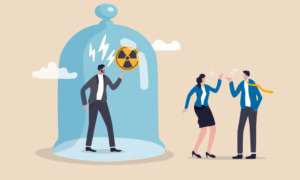Sen. Chuck Schumer (D-N.Y.) has introduced a bill to take to scale a long-running pilot project that provides youth-serving organizations with access to criminal histories.
Schumer’s bill (S.645) would amend the National Child Protection Act of 1993 to make background checks affordable for nonprofits that are vetting candidates to serve as mentors, volunteers or employees.
The pilot project is managed by MENTOR, an Alexandria, Va.-based organization for mentors, in partnership with the National Center for Missing and Exploited Children. The groups use the FBI nationwide fingerprint database to determine whether prospective volunteers or employees have criminal backgrounds that would cause them to be deemed unfit to work with children.
A few nonprofits have access to the FBI checks through the pilot program. A check costs them $18, usually with a three- to five-day turnaround.
Most nonprofits have to go through state agencies for background checks, and only 18 of those offer access to the FBI national database, according to MENTOR. Dozens of states charge more than $30 for the background check, and the turnaround time is often three weeks or longer.
The 1993 act, according to a White House statement issued when President Bill Clinton signed it, was supposed to establish a national database of “all indictments and convictions on child abuse and sex offense charges,” and allow “all businesses or organizations who employ a childcare provider to ask a state agency to check this database for all job applicants.”
This is the seventh consecutive year that the background check process has been renewed as a pilot project. Larry Wright, president of MENTOR, said his group and NCMEC have lost money operating it, and operating the pilot project for another year is not an option.
“This is sort of the last, best opportunity” for Congress to expand it, he said.
MENTOR processes about 25,000 records checks per year, Wright said, and 6 percent of the people checked are found to have criminal records. He estimated that if the FBI took over a full-scale background check program for nonprofits, it would provide more than 100,000 background checks of potential workers and volunteers each year.
The bill has been referred to the Senate Judiciary Committee, with three Republican and three Democratic co-sponsors.































